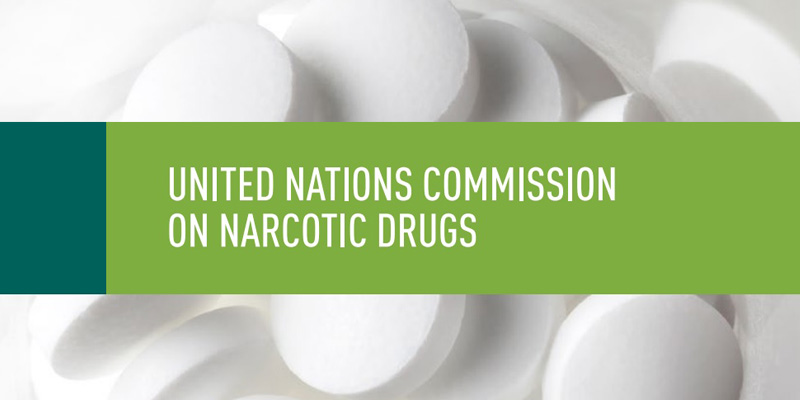- India
- Dec 09
India to Chair UN Commission on Narcotic Drugs (CND)
• India has been chosen to Chair the 68th Session of the Commission on Narcotic Drugs (CND).
• The CND is the principal policy-making body of the United Nations on drug-related matters.
• Shambhu S. Kumaran, India’s Permanent Representative to the United Nations in Vienna, officially assumed the chairmanship of the UN forum.
What is the purpose of Commission on Narcotic Drugs?
• The Commission on Narcotic Drugs (CND) reviews and analyses the global drug situation, considering supply and demand reduction. It takes action through resolutions and decisions.
• The CND was established by the Economic and Social Council (ECOSOC) in 1946, to assist in supervising the application of the international drug control treaties.
• In 1991, the General Assembly further expanded the mandates of CND to enable it to function as the governing body of the United Nations Office on Drugs and Crime (UNODC).
The CND’s agenda has two distinct segments:
i) A normative segment for discharging treaty-based and normative functions.
ii) An operational segment for exercising the role as the governing body of UNODC.
The CND is mandated to decide on the scope of control of substances under the three international drug control conventions:
i) The Single Convention on Narcotic Drugs of 1961, as amended by the 1972 Protocol.
ii) The Convention on Psychotropic Substances of 1971.
iii) The United Nations Convention against Illicit Traffic in Narcotic Drugs and Psychotropic Substances of 1988.
• Under the Conventions, CND is mandated to decide, on the basis of the medical and scientific assessment by the World Health Organisation and the International Narcotics Control Board, to place narcotic drugs, psychotropic substances and precursor chemicals under international control, to change the level of control or to release substances from control.
Members of CND
• CND is composed of 53 Member States elected by ECOSOC for a period of four years.
The distribution of seats among the regional groups is as follows:
i) Eleven members for African States.
ii) Eleven for Asian States.
iii) Ten from Latin American and Caribbean States.
iv) Six for Eastern European States.
v) Fourteen for Western European and other States.
vi) One seat rotates between the Asian and the Latin American and the Caribbean States every four years.
• The Bureau of CND is composed of the chairperson, three vice-chairpersons and one rapporteur. The Extended Bureau includes the Chairpersons of the five regional groups, the Chair of the Group of 77 and China, and the representative of the State holding the presidency of the European Union.
• The CND meets annually and adopts a range of decisions and resolutions. Inter-sessional meetings are convened throughout the year.
• Towards the end of each year, the Commission meets at a reconvened session to consider budgetary and administrative matters as the governing body of the United Nations drug programme.
India’s role as Chair of CND
• As the Chair, India will be expected to articulate the interests of the Global South in line with its role in promoting the interests and perspectives of developing nations in global discussions.
• India would also strive to build on the ongoing work of the CND to foster dialogue and understanding on drug policy issues and especially to integrate concerns of emerging economies with the priorities of developed nations to promote holistic and balanced approaches to this key issue.
• Over the coming year, the CND’s agenda is expected to focus on strengthening international collaboration to address critical issues such as illicit drug trafficking, substance abuse, and their associated social and health impacts as well as availability of internationally controlled substances for medical and scientific purposes.
• By prioritising multilateral dialogue and evidence-based solutions, India will continue to partner with other member states of the CND to advance equitable, inclusive, and sustainable strategies on all these issues
Additional Read:
India’s fight against narcotic substances is complex and multifaceted, involving enforcement actions coupled with advanced detection technologies, international cooperation and robust legal frameworks. Evolving trends in drug trafficking and the emergence of new psychoactive substances necessitate continuous innovation and adaptation in enforcement strategies.
Manorama Yearbook app is now available on Google Play Store and iOS App Store


